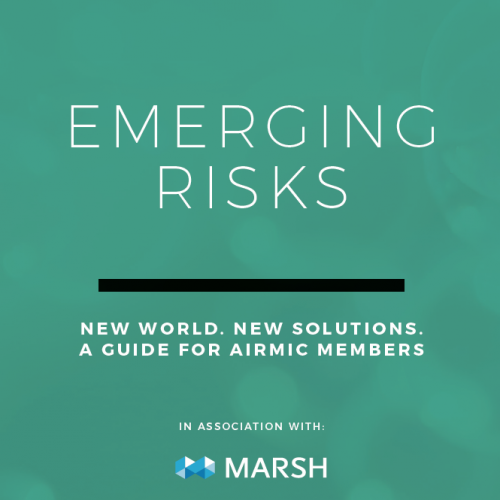Emerging risks
Introduction
Risk has typically been viewed as something negative to be minimised or avoided. Since the financial crisis, organisations have focused their risk management efforts on strengthening risk frameworks and processes, tightening risk assessments, reinforcing oversight arrangements, and improving monitoring and reporting processes with an emphasis on compliance and prudence.
Times have changed.
In the last year, the economic growth rates of the major economies have all been positive, but there has been quite a divergence of performance between countries. Recent outlooks for the global economy from the forecasters are quite bearish, with significant scope for politically oriented shocks, especially in advanced economies, where risks associated with national political ambitions, societal frustration and upheaval, disruption and opportunities created by technology, and environmental emergencies dominate the risk landscape.
This makes the assessment of a clear, long-term vision for sustainable business growth more difficult and an understanding of the risks associated with delivering that harder to achieve.
No organisation, whatever the sector or location, can avoid this, and all need to be on the front foot. Risk professionals cannot, and should not, try to predict the future, but the tools and techniques most used for managing traditional risks may not be effective for managing the risks emerging and evolving. These risks typically emit low signals on the risk radar, and for which data can be sparse and unreliable. These risks are often hard to detect, difficult to assess and easy to ignore in favour of the more obvious, immediate and easier-to-explain traditional risks on which many business leaders prefer to concentrate.
This guide examines the context of why emerging risks are important and why they are different. Illustrated by political and environmental risks, it explores the need to shake up risk assessment and enhance risk management practices.
Turning the spotlight on the risk profession, the guide considers the implications for risk professionals with ambitions to gravitate from a back-office analytics and controls orientation to the centre stage of supporting commercial and other management decision-making in a risk-intelligent organisation.
Intelligence is the ability to adapt to change
Stephen Hawking
- Fill out an application Our membership manager will assess your eligibility against our criteria.
- Complete your profileIf you are eligible for membership you will be asked to answer a few questions about yourself.
- PaymentYou can make payment online using a card or request an invoice.

